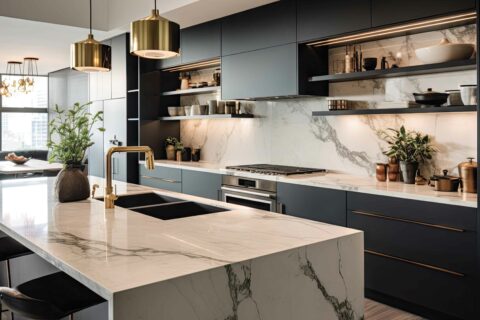March 23, 2022 • Buying
Looking for a Deal: Will a fixer-upper actually save you money?
By Kate Barker
Buying a fixer-upper can be an enticing idea. The purchase price is much lower than other homes in the area, there are generally less people interested in the property because it doesn’t show as well, and it could be the perfect investment opportunity to flip the home and make a profit. It’s a buyer’s dream, right?
While there are some bright sides to buying a home with major problems and fixing it up, there are also a lot of risks involved. There’s a lot more to renovations than meets the eye, and that dreamy looking opportunity may be a money pit that could be avoided by purchasing the turnkey property next door.
So what is the real cost of that fixer-upper?
Don’t be fooled by a low sticker price. That’s only one piece of the story. Before making an offer, take the time to get quotes from contractors, price out materials, get some reliable timelines, and factor in any extras that might come along during the renovation.
Keep in mind contractors may not get to you right away, so you might have to wait to get that dream renovation started. Are you prepared to live in the house as is? Or do you have other accommodation for the time being?
Many people buy a fixer-upper with plans to DIY the renovations. If you’re hoping to go this route, make sure you have the skills, time, and permits in place, and factor that into your equation. Always schedule longer than you expect for DIY home renovations. Just because something looks simple doesn’t mean it’s easy. And once you start, you may find more issues that you didn’t anticipate.
Also take a serious and honest look at the timeline. A professional contractor can get your project done quickly and effectively. If you have a time limit to complete the renovations, it’s probably better to hire a pro.
When calculating the cost of renovations, take some time to add up all the extra expenses, as these can often make or break the budget. Are you able to live in the house when you purchase it? What about during the renovations? Do you have another place to stay? Can you afford to tack on rent or a hotel stay?
What if the renovation takes longer than expected? If you’re redoing the kitchen, have you factored in the cost of eating out until the reno is finished? Be honest when coming up with the costs of the project and make sure to include budget for everything that might arise.
Once you’ve come up with an honest list of expenses for this project, it’s time to add them up. Be sure to include all your calculations: the sticker price of the home, the cost of renovations and materials, the add-ons you’ll accumulate along the way, and some extra for the unexpected, which is bound to happen. Compare the total cost against the cost of a turnkey home and see if you’re really saving.
Make sure to factor your quality of life into the equation too. Are the savings on the fixer-upper worth the stress and time involved to complete the renovations? Or do you really want to move into a turnkey home today and start living your best life?
Buying a fixer-upper can be an excellent investment for the right buyer, but there are a lot of factors at play, and the process isn’t for everyone. Not every run-down house is a good fixer-upper project either, so taking the time to assess all angles before committing to a purchase will make sure you’re getting a project that’s right for your situation.
Consider Contingencies
When buying a fixer-upper, you’ll want to consider what contingencies you place on the offer. A home inspection may seem silly – you already know the house is in disrepair – but beyond confirming the issues you already know exist, it might unveil anything extra you didn’t consider when you did your budgeting. Fixer-uppers can be a good investment if the structure of the home is intact, but issues like a cracked foundation can add a whole new level of problems that you may not be willing to take on.
A financing contingency is a good idea when buying any home, but especially with a fixer-upper. Does your mortgage lender know what you’re getting into? And are they still willing to help you foot the bill? Being prepared for this step will also help you come up with a reasonable plan to pay for the renovations, and make sure you’re ready to take on this project. It will also give you a reason to back out if your finances fall through, so you’re not stuck with a home that needs repairs beyond your skill and budget.



